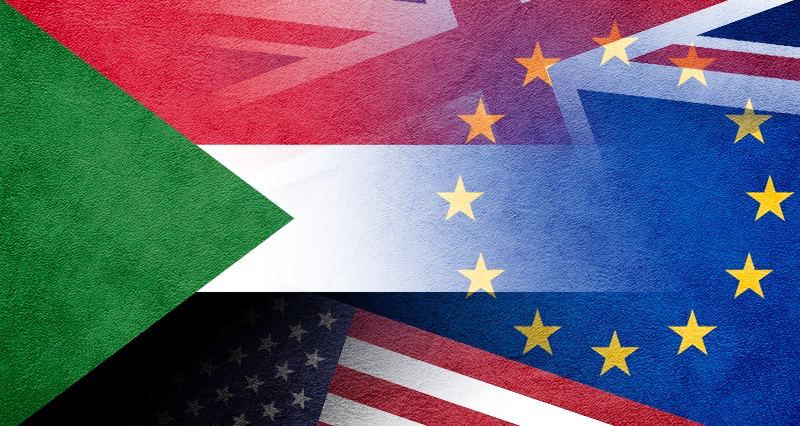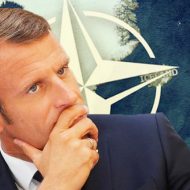By Dr. Mayada Kamal Eldeen *
“The largest humanitarian crisis in the world”
The war waged by the Rapid Support Forces commenced on April 15, 2023, and is nearing its second year without cessation this April. The United Nations estimates that at least 12,000 people have perished (as of February 2024), while local authorities posit that the actual number is substantially higher, owing to the challenges of accessing all areas amidst ongoing conflict. The conflict pits Sudan’s two foremost military entities, the Sudanese Army and the Rapid Support Forces, against each other.
Prior to April 15, 2023, they constituted the two branches of the military apparatus, with the Rapid Support Forces being legally affiliated with the armed forces and adhering to the directives of the Supreme Commander.
However, they rebuffed efforts to reconcile their status and integrate into the Sudanese National Army. The present turmoil in Sudan has been marked by the devastation of infrastructure in the capital, Khartoum, and other affected states. Moreover, it has devolved into a deliberate assault on unarmed civilians, with the Rapid Support Militia perpetrating killings, rapes, and looting of homes, banks, and various institutions.
The conflict has also precipitated an unparalleled humanitarian crisis. The number of individuals displaced by the conflict since April 15, both within and beyond Sudan’s borders, has reached 8.1 million (as of February 2024). Approximately 6.3 million people have been internally displaced to various regions within Sudan, while another 1.8 million have sought refuge in neighboring countries such as Egypt, Chad, Ethiopia, Central Africa, and South Sudan. Consequently, Sudan now leads globally in terms of citizens seeking asylum in other nations. Additionally, approximately 25 million individuals within Sudan require assistance, yet international aid efforts have been severely lacking, with the United Nations Humanitarian Aid Program for Sudan declaring a need for $2.7 billion in 2024, of which less than 5% has been funded.
The importance of Sudan in the region
Sudan represents a treasure trove for other countries, boasting 200 million acres of fertile agricultural land, 11 flowing rivers, and 102 million heads of livestock. This wealth positions Sudan as one of the most affluent countries in both the Arab and African regions in terms of livestock and agricultural resources, serving as a significant source thereof.
Moreover, Sudan receives 400 billion cubic meters of annual rainfall, possesses 1.4 million tons of uranium, 6.8 billion barrels of oil, and 85 billion cubic meters of gas. Despite political crises causing a decline in gold production from 105 tons in 2017 to 15 tons in 2022, Sudan still managed to export 2 tons amidst ongoing conflicts, with total gold reserves amounting to 1,037 tons.
Sudan leads globally in gum Arabic production, accounting for 80% of the market share. Additionally, it ranks first among African and Arab nations in sesame production. The “Al-Jazeera Agricultural Project” in central Sudan stands as one of the most extensive irrigation schemes globally, spanning an area of 8,800 square kilometers, equivalent to the size of the Netherlands. In past decades, Sudan was famously hailed as the “breadbasket of the world”. Beyond its abundant natural resources, Sudan’s geopolitical significance is underscored by its strategic location on the Red Sea, which hosts two crucial passages for global trade and oil—the Suez Canal and Bab al-Mandab. This strategic position facilitates trade with Europe, supported by Sudan’s 800-kilometer coastline boasting numerous natural ports capable of accommodating large vessels without human intervention.
Throughout the twentieth, nineteenth, and eighteenth centuries, Sudan’s ports played pivotal roles in various crises, rendering the nation a focal point of regional and international competition. Consequently, Sudan has attracted the interest of numerous international powers, exacerbating the turmoil and instability it has endured historically. In all Sudanese, Sahelian, and Saharan conflicts, external actors have predominantly focused on providing security, military assistance, and limited economic aid and loans. The positions of major international powers toward the current Sudanese crisis can be elucidated by examining their stances.
The USA’s stance on the Sudan crisis
Sudan did not hold strategic importance for the United States akin to neighboring Egypt or Saudi Arabia. Throughout Omar al-Bashir’s regime (1989-2019), which the US classified as a state sponsor of terrorism in 1993, Sudan was deemed a rogue state. Successive US administrations imposed a series of economic sanctions on Sudan between 1988 and 2017, either through presidential executive orders or congressional legislation, to pressure Sudanese regimes.
Following the ousting of Omar al-Bashir’s National Salvation System in 2019 amid widespread demonstrations, Washington viewed the event optimistically, considering it a significant development and an opportunity to expand its influence in East Africa. This was particularly crucial as Russia and China had surpassed the United States in various aspects, including commercial, economic, strategic, and military domains. Consequently, American interest in Sudanese affairs surged following this critical juncture.
Sudan was removed from the US list of state sponsors of terrorism in 2020, paving the way for the normalization of relations after a rupture lasting over a quarter-century. The United States also encouraged the International Monetary Fund and the World Bank to resume support for Sudan.
The United States emerged as one of the guarantors of the 2019 political agreement, forming part of the Quartet alongside the United Kingdom, Saudi Arabia, and the United Arab Emirates, aimed at achieving a democratic transition and transferring power to civilian forces. This culminated in the signing of the “Framework Agreement” on December 5, 2022, between the military and civilian components, comprising 40 political groups and civil society organizations, endorsed by the United States and its allies.
In August 2022, after a prolonged diplomatic rift, the United States appointed John Godfrey as the first American ambassador to Sudan in over a quarter-century, reflecting Washington’s acknowledgment of Sudan’s growing importance and the necessity of robust relations, particularly amid Russia’s efforts to secure a military naval base in Port Sudan. This move also aligned with American apprehensions regarding the Russian “Wagner” military group’s potential involvement in Sudan, given its activities in numerous African countries, notably Mali, the Central African Republic, and Niger.
However, Godfrey’s attempts to intervene in Sudanese politics and to advocate for a secular leadership encountered staunch opposition from right-wing factions. Despite throwing his support behind Volker Peretz, head of the UN mission, Peretz’s failure exacerbated the situation catastrophically.
Following Sudanese authorities’ declaration of Peretz as “persona non grata” in June 2023, the entire delegation swiftly departed. Subsequently, Godfrey was compelled to resign under mysterious circumstances, delivering a farewell speech amidst gunfire, symbolizing the White House’s shift in policy. During this period, US policy centered on returning to the “Framework Agreement” for democratic transition and power transfer to civilian forces before the outbreak of conflict in April.
Upon the eruption of fighting between the Sudanese army and Rapid Support Forces on April 15, 2023, the Biden administration swiftly initiated efforts to halt hostilities. While President Joe Biden has not directly addressed the Sudanese issue since the current war’s onset, he previously advocated for measures to stop genocide during the Darfur crisis while serving as a senator and chairman of the Senate Foreign Relations Committee.
Secretary of State Tony Blinken assumed a diplomatic role in pursuing a ceasefire, engaging with counterparts in Saudi Arabia, the United Arab Emirates, and various European nations to coordinate regional and international initiatives aimed at ending hostilities between Sudanese factions. Blinken also held separate discussions with Sudanese Sovereignty Council President Abdel Fattah al-Burhan and Rapid Support Militia leader Mohamed Hamdan Daglo, known as “Hemedti.”
The US State Department established a dedicated task force for the Sudanese military conflict to oversee planning, management, and logistics in addressing the crisis, as confirmed by its spokesman in April 2023, following the war’s outbreak.
Moreover, the CIA plays a clandestine role in Sudan, conducting traditional intelligence operations and monitoring reports regarding the influence of the Russian Wagner group in the country. Under the auspices of Saudi-American mediation, accompanied by an American threat to impose sanctions on individuals jeopardizing Sudan’s security and stability, negotiations commenced in Jeddah on May 6, 2023, just a fortnight after the war erupted.
However, despite initial progress, talks stalled when the Sudanese army suspended its participation on May 31, 2023, citing the Rapid Support Militia’s failure to adhere to the “Jeddah Declaration.”
Subsequently, both Saudi Arabia and the United States announced the talks’ suspension on June 1, 2023, after months of achieving only temporary truces without securing a lasting ceasefire. Concurrently, the United States imposed sanctions on both the Sudanese army and Rapid Support Forces in June 2023 and again in January 2024, employing a “carrot and stick” approach to hold accountable those undermining Sudan’s security and stability by violating ceasefire agreements repeatedly. These sanctions included visa restrictions on specific individuals, including armed forces officials, Rapid Support Militia personnel, and former President Omar al-Bashir’s regime leaders, along with economic sanctions targeting a bank and three companies affiliated with the Rapid Support Militia, as well as three companies linked to the Sudanese Armed Forces.
USA’s failure to address the Sudan crisis
All current mediation efforts on the negotiation table have failed to secure a permanent ceasefire. The most notable among these are the Jeddah talks, sponsored by the United States and the Kingdom of Saudi Arabia, which only managed temporary cessation of hostilities through tactical truces. However, these truces were repeatedly violated, leading to the indefinite suspension of negotiations. Additionally, periods of military lulls provided opportunities for the Rapid Support Militia forces to expand, seize property, and target unarmed civilians.
Despite the clashes in Khartoum being apparent, the countries sponsoring the negotiations, particularly Western nations, avoided addressing the departure of the Rapid Support Forces from civilian facilities. Instead, they focused solely on entering ceasefire negotiations, ensuring the inclusion of the Rapid Support in political discussions. This failure to acknowledge the militia’s official status or affiliation with the army perpetuates the conflict, sustained by external support and resulting in security chaos. President Joe Biden’s preoccupation with the Israeli war on Gaza and his ongoing reelection campaign have likely contributed to the USA’s inability or reluctance to intervene decisively in the Sudanese issue. This perceived indifference represents a strategic mistake, as it does not align with Washington’s interests and creates opportunities for other powers to exploit.
The economic factor also influences the USA’s engagement with Sudan. Currently, there are no valid trade agreements with America, and the volume of trade exchange is fragile, estimated at around $50 million. Moreover, 80% of this trade is in favor of the United States, as per statements by the Undersecretary of the Sudanese Ministry of Commerce.
Another reason for the USA’s confusion and consequent failure to address the Sudan crisis lies in the decline of American influence in the Arab region. Regional countries, particularly those investing in Sudan, now wield more influence. Consequently, the USA cannot make decisive decisions on Sudan without considering the interests of its regional allies. This ambiguity reflects a confused and incoherent American position. Although the USA possesses limited but significant influence in Sudan, it has various tools and mechanisms to intervene, including pressure tactics, mediation, leveraging regional actors, or engaging international organizations.
Addressing the negative role played by the UAE in supporting the Rapid Support Forces and militia is crucial. The appointment of Tom Perriello as a unique American envoy to Sudan signals a potential shift in US policy towards Sudan, indicating a more robust response to the crisis.
European Union’s stance on the Sudan crisis
Since the outbreak of the current war in Sudan, the European Union has swiftly condemned hostilities and called for an end to fighting, advocating for political dialogue to resolve the crisis. However, its responses have largely focused on warnings about the deteriorating humanitarian situation.
Statements from influential European countries, such as Germany, have consistently expressed concern and urged calm, emphasizing the need for a return to negotiations. The European Union’s interest in armed conflict over power in Sudan has been long-standing, with recommendations linking international aid to Sudan to the army’s withdrawal from power monopolization and the empowerment of civilians. This modest role contrasts with Europe’s active involvement during the December 19, 2018 revolution, which led to the overthrow of former Sudanese President Omar al-Bashir’s rule on April 11, 2019. European ambassadors supported and participated in the demonstrations against the regime at that time. Subsequently, European-Sudanese relations witnessed increased cooperation in various areas, including visits, economic ties, humanitarian aid, and political and security matters. The European Union supported Sudan through development programs, economic reforms, job creation initiatives, and humanitarian aid projects. Despite these efforts, Europe’s role in resolving the current Sudanese crisis remains limited for several reasons: Europe lacks sufficient tools to pressure both conflict parties or internal communication channels within Sudan to compel them to negotiate, relegating it to a bystander role.
Unlike Russia, which has military bases near Sudan’s borders and deploys the Wagner Group forces, Europe lacks a security force or military bases within Sudan. Europe’s attention has been diverted by internal crises, such as the COVID-19 pandemic and the Russian-Ukrainian conflict, undermining its effectiveness in external affairs. The European Union’s reliance on the United States, which holds greater influence in Sudan, further limits its independent action. Overall, Europe seeks to minimize illegal immigration from Sudan while also maintaining regional and European security. Despite its considerable aid efforts in Sudan post-2019, Europe’s role in resolving the current crisis remains constrained, primarily due to its limited impact on Khartoum’s internal dynamics.
Britain’s role in the conflict
Despite the modest European role in Sudan so far, what is strange in all of this is the absence of British participation, especially since Britain is the former colonial ruler (1899-1956) with deep historical relations and is the current penholder for Sudan in the United Nations, in addition to being responsible for drafting resolutions related to Sudan in the UN Security Council.
Furthermore, Britain was one of the Western actors most involved in Sudan in and after the overthrow of Omar al-Bashir’s regime in 2019, as its ambassador in Khartoum participated directly in the sessions of the demonstrations that broke out against the government at that time. Britain made great efforts to ensure the establishment of civil and democratic rule after the overthrow of al-Bashir from authority. Dominic Raab, the then British Foreign Secretary, also personally visited Sudan in January 2021 to express his support for the civilian prime minister-designate, Abdullah Hamdok. This coincided with a noticeable increase in British financial aid, which rose from £93 million in 2019 to £139 million in 2020, to support the transitional government. Indeed, this increase in aid briefly elevated Sudan to become the tenth-largest recipient of British aid.
Britain is also a member of the informal “Quad” alongside the United States, Saudi Arabia, and the United Arab Emirates, which played a pivotal role in mediating the signing of the “Framework Agreement” in December 2022, which provides for a gradual transfer of power and final elections leading to a civilian-led government. Although this initiative ultimately faltered due to the war in April 2023, rendering the agreement somewhat obsolete, it underscored Britain’s significant influence.
London also suggested in the Integrated Review of Security, Defense, Development, and Foreign Policy in March 2021 that East Africa is a region where the UK could increase its engagement as part of its “Global Britain” plan, which it launched after leaving the European Union.
However, despite all these ambitions and its strong position to participate, the UK has been largely absent from the deal-brokering efforts between the RSF and the army since the fighting began in April, and its primary focus has been little more than evacuating its citizens – even the evacuation came as a result of criticism by some British citizens of Sudanese origin that too little effort had been made to help them – a task that many viewed as ineffective. However, since then, British ministers have had little involvement.
Britain’s inability to better influence the situation may be due to cuts in the aid budget. Britain’s aid to Sudan was reduced in the period preceding the 2023 crisis. Britain reduced its aid budget from 0.7 percent to 0.5 percent of GDP in November 2020, which impacted Sudan. Total British aid to Sudan amounted to 223 million pounds sterling in 2021-2022, but that aid decreased to only 31.5 million pounds sterling in 2022-2023. Many of these reductions fell on non-governmental organizations such as the “Safer World” organization, which joined the ranks of Sudanese society, and therefore, such aid cuts have affected Britain’s understanding of the Sudan crisis. As a result, when the crisis broke out in Sudan, Britain was in a lower position to participate and influence. Geopolitically, the West’s influence in Sudan, the Middle East, and Africa is diminishing, and after Brexit, the United Kingdom has become a weaker player within the Western group, in contrast to the increasing emergence of external powers such as China and Russia in Sudan. For example, the Russian Wagner Group has a small but essential mission, while China continues to play its role as a significant investor. Likewise, the two Arab Quartet members, Saudi Arabia and the United Arab Emirates have outperformed the United Kingdom and others in terms of their level of investment and influence in what is happening in Sudan.
Conclusion
As the fighting continues and approaches its second year, and consequently, the scope of clashes expands between the Sudanese army and the Rapid Support Forces in different states of the country without the presence of an influential party capable of ensuring a permanent ceasefire, an emphasis on the limited American and Western role in influencing the course of events in Sudan.
While the United States, the European Union, and other Western powers still exist, they lack the dominant position they occupied when the Comprehensive Peace Agreement was negotiated in 2005, leading to South Sudan’s secession, for example.
Alternatively, its apparent intervention in the demonstrations led to the overthrow of Omar al-Bashir’s regime in 2019. The Western strategy in dealing with the events in Sudan will be through coordination with regional countries that influence Sudan and not interfering directly in negotiations and mediation. Also, the Sudanese file – according to the current reactions – does not appear to be a priority for the West, which is preoccupied with the Israeli war on Gaza. Everything issued by those parties is a reaction to block the way to any Russian expansion in Sudan and not a fundamental interest in the reality of the situation in Sudan itself.
Whatever the case, the US sanctions imposed on Sudan so far represent a kind of pressure exerted by Washington on both sides of the war to force them to enter into serious negotiations in order to reach a permanent ceasefire agreement with a commitment to implementing its provisions in preparation for reaching a political solution to the conflict. Despite this, some believe these sanctions may fail to achieve the intended goal in light of the long experience of Sudan.
Dr. Mayada Kamal Eldeen was born in 1978 in Sudan. In 2004, she obtained a Bachelor’s degree in Political Science and Strategic Research at Al-Zaim Al-Azhari University in Khartoum and a Master’s degree in 2006. She continued her academic education with a scholarship from the Presidency for Turks Abroad and Related Communities (YTB) for a PhD in Political Science and International Relations at Yildiz Technical University, where she completed her dissertation in 2019. She has been working as an Assistant Professor of Political Science and International Relations at Tokat Gaziosmanpasa University since December 2019.
She has been researching Foreign Policy, International Current Affairs, Türkiye-Africa Relations, Middle Eastern Society and Politics, and Humanitarian Aid since her undergraduate studies. Along with her academic career, she has gained work and academic experience in domestic and international organizations, and her work has been published in various institutions. In addition to Arabic and Nubian, she is also advanced Turkish. In addition, she is a member of the African Researchers Association (AFAM). As of now, she has held academic and analyst positions at various TV channels and institutions in Sudan and Türkiye.









Leave a Reply